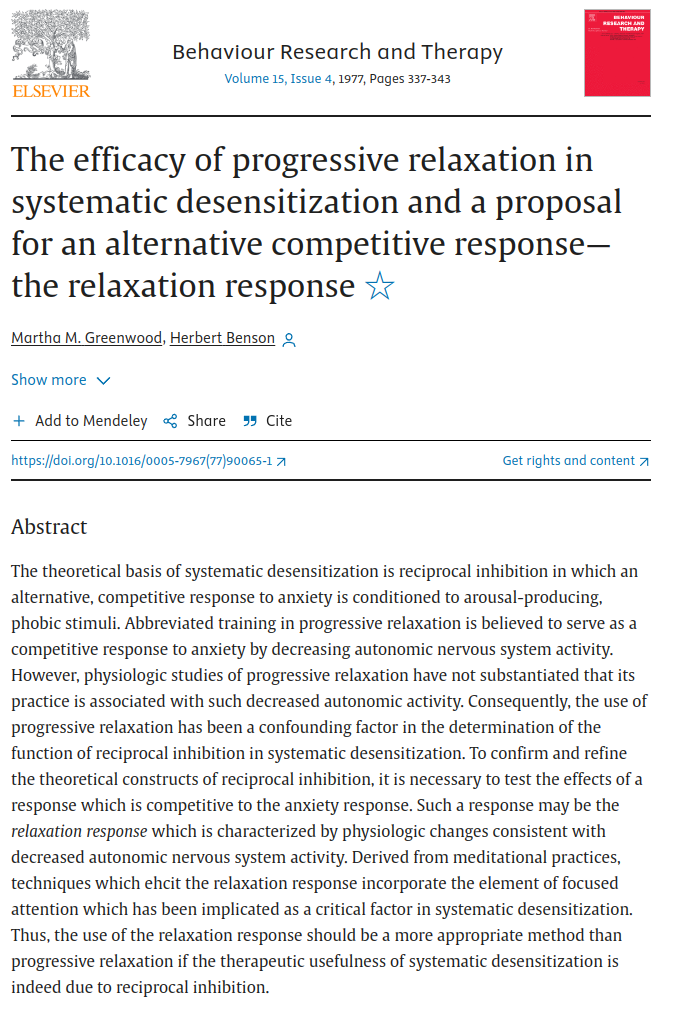The theoretical basis of systematic desensitization is reciprocal inhibition in which an alternative, competitive response to anxiety is conditioned to arousal-producing, phobic stimuli. Abbreviated training in progressive relaxation is believed to serve as a competitive response to anxiety by decreasing autonomic nervous system activity. However, physiologic studies of progressive relaxation have not substantiated that its practice is associated with such decreased autonomic activity. Consequently, the use of progressive relaxation has been a confounding factor in the determination of the function of reciprocal inhibition in systematic desensitization. To confirm and refine the theoretical constructs of reciprocal inhibition, it is necessary to test the effects of a response which is competitive to the anxiety response. Such a response may be the relaxation response which is characterized by physiologic changes consistent with decreased autonomic nervous system activity. Derived from meditational practices, techniques which elicit the relaxation response incorporate the element of focused attention which has been implicated as a critical factor in systematic desensitization. Thus, the use of the relaxation response should be a more appropriate method than progressive relaxation if the therapeutic usefulness of systematic desensitization is indeed due to reciprocal inhibition.
The efficacy of progressive relaxation in systematic desensitization and a proposal for an alternative competitive response—the relaxation response
Publication
Behavior Research and Therapy
15(4),pp. 337-343
Abstract
Web and Email Links
Related Listings
Journal
Behavior Therapy
The majority of individuals with insomnia treated with single behavioral interventions do not achieve normal sleep. In this study, individuals with chronic sleep-onset insomnia (n=12) were treated with a sequentially administered multifactor behavioral intervention consisting of sleep restriction, modified stimulus control, and relaxation training. They were compared to age- and sex-matched normal sleepers (n=14) prior to and following treatment using home-based polysomnography and po […]
Journal
The American Journal of Psychiatry
A framework for the integration of meditation and psychotherapy is presented through a consideration of the psychobiological nature of meditation (the relaxation response) and discussion of a traditional meditation practice (mindfulness meditation) as an effective cognitive technique for the development of self-awareness. The mechanisms by which the emotional and cognitive changes of meditation can be of therapeutic value are explored and the synergistic advantages of the combination […]
Journal
Developmental Medicine and Child Neurology
To assess the efficacy of electromyographic biofeedback, relaxation-response training and pain behavior management as a treatment for pediatric migraine, we studied 18 children between the ages of eight and 12 years (mean = 10 X 1) in a prospective, randomized, controlled investigation. Six patients received all three treatment procedures, six received relaxation-response training and pain behavior management, and the remaining six constituted a waiting-list control group. All patient […]

